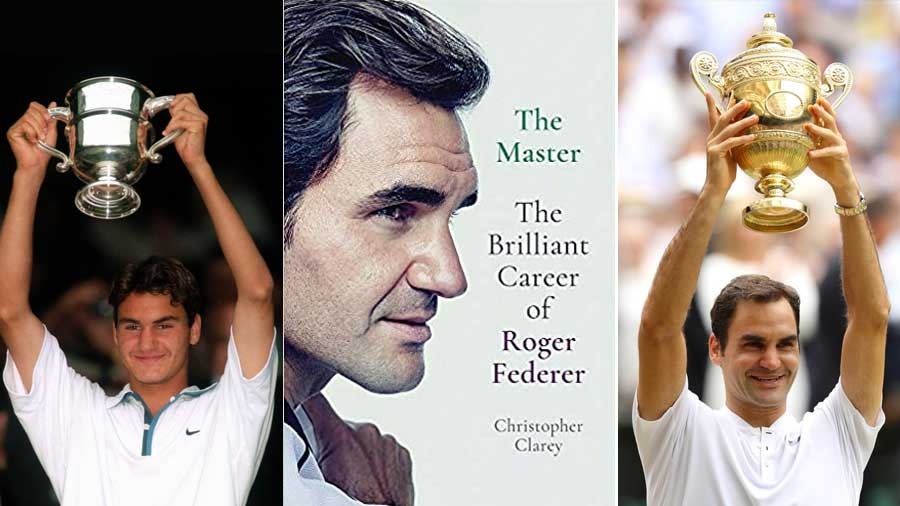If there is one thing I have learnt from Roger Federer, it is that a match is not over till it is over. Even on the last point, things can go wrong. Or right! My tennis hero has found ways to lose at least 23 matches, including tournament finals, after holding a match point or more. But he has also found ways to win at least 22 matches after being one or more match points down (twice he was seven match points down).
But match points pale in comparison to the challenges he faces now: advancing age and worsening injuries. It is hard being a Federer fan these days. My fandom was once defined by obsession and tears. Now I wear an armour of hardheartedness. I tell myself it will hurt less if I have no expectations.
I still have expectations, and it still hurts.
I approached The Master: The Brilliant Career of Roger Federer, the latest biography of the Swiss ace, with the same hardheartedness. Despite the author’s pedigree — Christopher Clarey has been writing about the sport from before I was born — I would not let myself get excited. I have read too many sports biographies that do not move beyond the playing arena to raise my expectations too high.
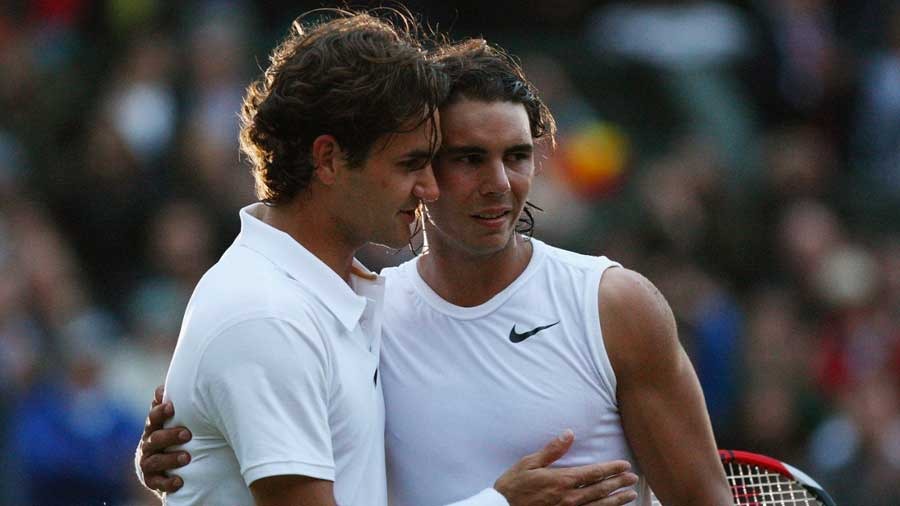
The book not only provides insights on Federer but even on some of his biggest rivals Ryan Pierse/Getty Images
I was pleasantly surprised. Extensively researched, the book not only provides insights on Federer but even on some of his biggest rivals. Having pored over Federer interviews and videos since I was nine years old, I thought there was not much left for me to discover about him. But I was mistaken. Read on to find out my top five takeaways from the biography.
Hurt and lonely teen
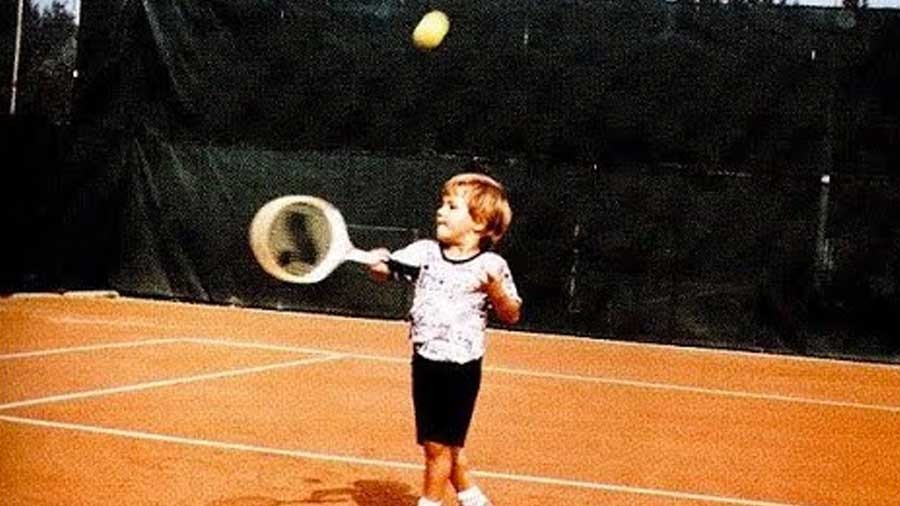
Roger Federer took up tennis at a very early age YouTube
Federer left home as a teenager to go learn tennis in another part of Switzerland. Knowing only Swiss German at the time, he struggled in his new school where everyone spoke French. He felt alienated and lonely. Federer is now famously multi-lingual, which is one major reason why so many people across the world connect with him. He can speak English, French, German, Swiss German, a little bit of Swedish, Afrikaans and even took Mandarin lessons in Shanghai (mentioned in the book). This is something I have always admired about Federer. It was fascinating to know that the roots of this ability — like maybe the roots of all greatness — lay in childhood experiences.
Restless youth
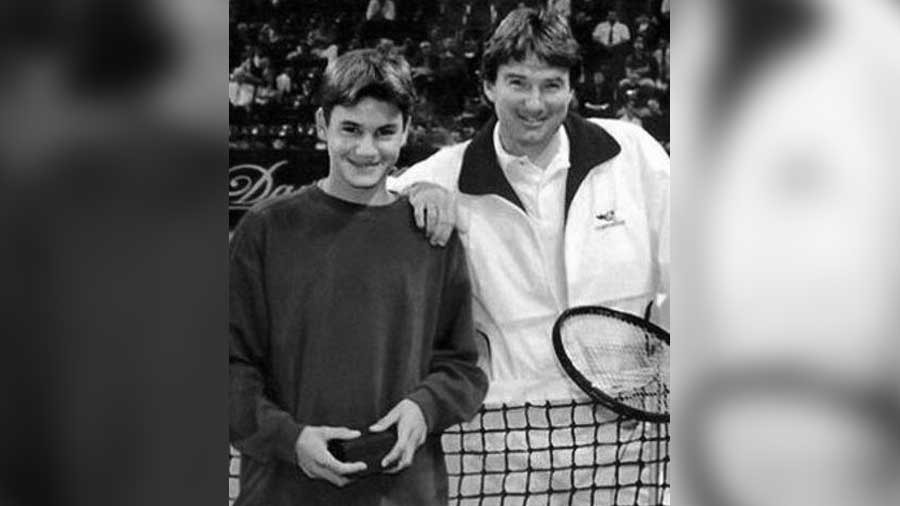
Ball boy Roger Federer with Jimmy Connors @gigicat7_/twitter
He lost some of his youthful habits like sticking his tongue out while serving or bouncing tennis balls between his legs, sending them backwards with a flick of his racket, then catching them behind the body and bouncing them back through his leg, in between points. It is difficult to believe now, but every one of his childhood coaches and friends talks about how restless he was on and off the court. If you have a kid who cannot stay still, well you never know, they might just be restless to achieve great things.
Extreme anger
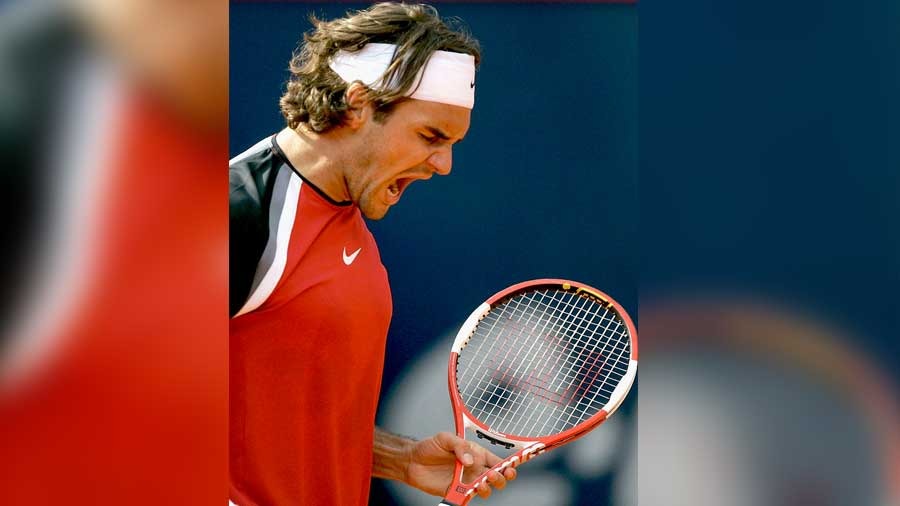
Early in his career, Federer used to often fly into a temper on court Friedemann Vogel/Bongarts/Getty Images
Many know that Federer was at one point an extremely angry player. He would rage and rant. What I did not know was that it got so bad that his dad used to leave money for Roger and drive off from matches because he did not want to be embarrassed when his son lost it on the court. Federer Sr once made his son get out of their car and rub snow on his head so that he would calm down (no, there is no parenting tip here, this is not that article). Many counselling sessions later, Federer did learn to control his emotions. Except for the tears after draining matches that led to him being called Roger Blubberer in England!
Football talent
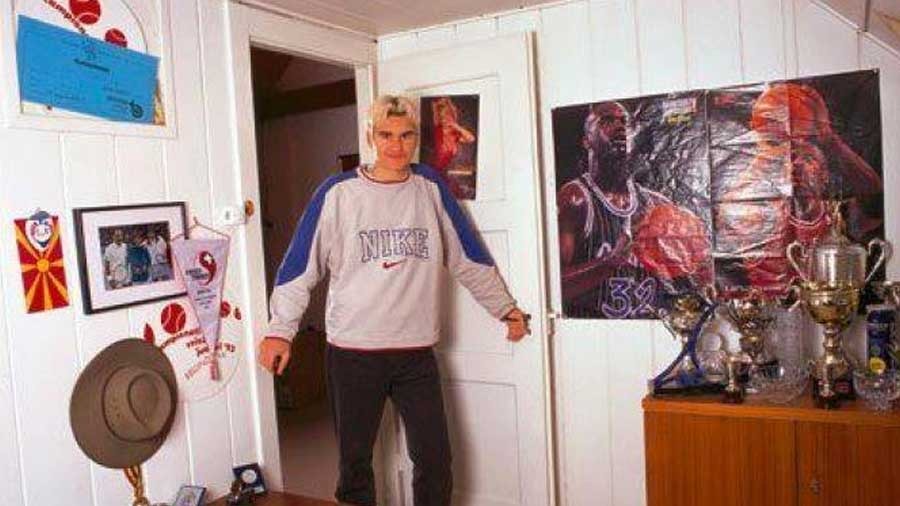
A 17-year-old Roger Federer with pin-ups of Shaquille O’Neal, Michael Jordan and Pamela Anderson in his bedroom in Basel @gigicat7_/twitter
He used to play football as a child and seriously considered that as an option but moved to tennis because he liked the individual control it gave him. I do not understand how people can be good at two sports; it is difficult enough to learn one.
Regular guy!
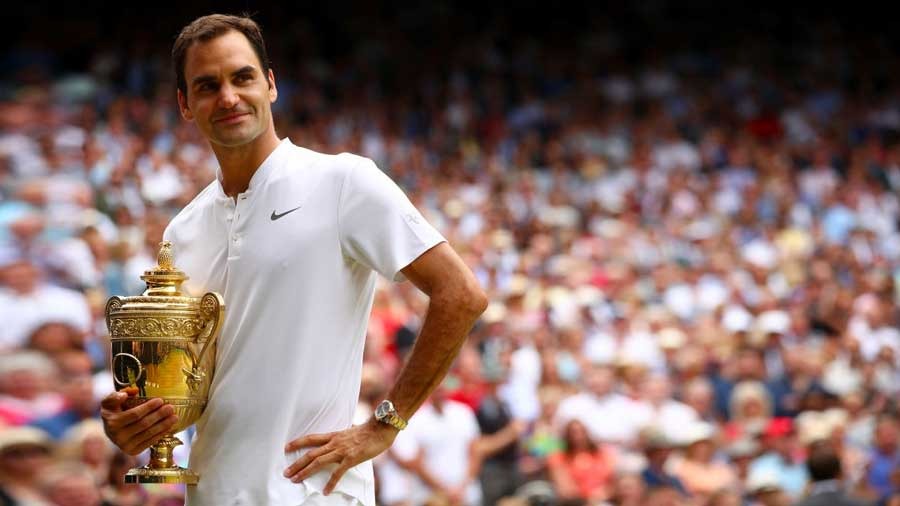
'Regular guy' Roger poses with the Wimbledon trophy Clive Brunskill/Getty Images
Roger thinks he is just a regular guy. Well, hello, please! I have not gone around saying “this guy is extraordinary” for 20 years for this kind of betrayal, Roger!
Clarey in several interviews has said that he felt the time was right to write this book. Federer's career is almost over. He will not win another grand slam. His rivalries are not at their peak, feels Clarey. I do not agree, even if there is not a lot of reason I can offer. I need more time to fully accept that I should now just enjoy the grace and beauty of Federer's game because someday soon he will stop. Because he is the one who taught me it is never over till it is over. Who knows, maybe...
